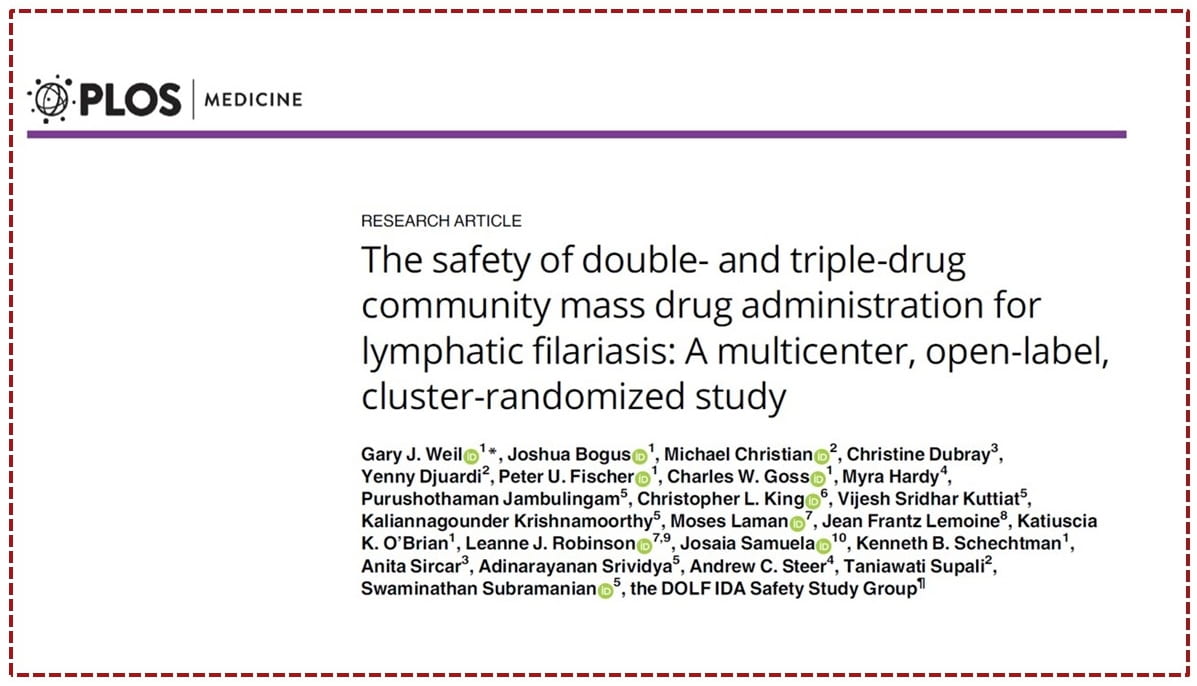The DOLF Project is proud to announce publication in PLOS Medicine of results form a major safety study investigating the use of a triple drug combination “IDA” as a treatment regimen for lymphatic filariasis. The study enrolled more than 26,000 participants in five countries. Results from this study suggest that IDA is safe enough for use in mass drug administration programs in countries without onchocerciasis or loiasis that currently use the current two drug, standard regimen ”DA” for lymphatic filariasis (LF) elimination. Preliminary results from this study were considered by an official WHO Guidelines Development Group that led WHO to endorse IDA for LF elimination to accelerate LF elimination in some settings. This publication provides more detailed results in support of the 2017 policy change, and it may speed adoption of IDA for LF elimination by health ministries in LF-endemic countries around the world.
Lymphatic filariasis (LF) is a disabling neglected tropical disease that is caused by small worm parasites that are transmitted by mosquitoes in more than 70 countries. The Global Programme to Eliminate Lymphatic Filariasis, coordinated by the World Health Organization, WHO, distributes doses of antifilarial medications to hundreds of millions of people each year to treat the worm infections and prevent the disabling disease “elephantiasis”. Millions of infections have been cured and millions of cases of disease have been prevented by this program since it started in 2000.
This large study (funded by the Bill & Melinda Gates Foundation) was led by the DOLF Project at Washington University. However, the high quality work on the ground was performed by a large cast of committed physicians and scientists, community health workers, and public health officials. DOLF is grateful to all of those who participated in this project and supported the research with their time and effort, and we would also like to thank the thousands of willing participants who made this work possible.
